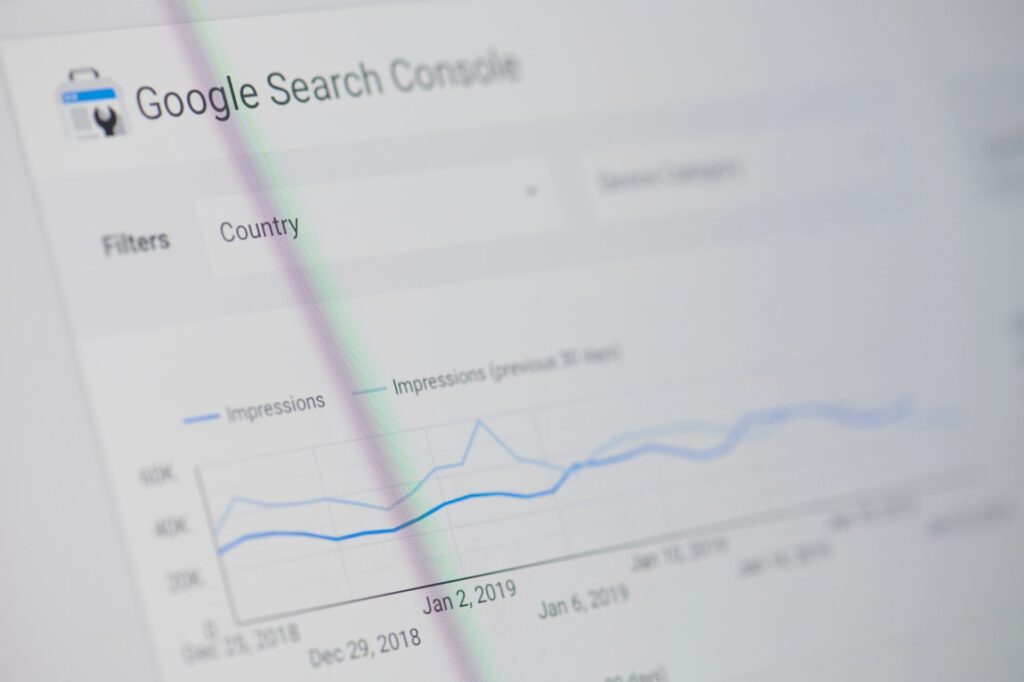A Beginner’s Guide to Google Search Console

Google Search Console is a free tool provided by Google that helps website owners monitor and maintain their site’s presence in Google Search results. It offers insights into how your website is performing, including the keywords people are using to find you, how often your site appears in search results, and if there are any issues preventing your pages from being indexed.
While it might seem overwhelming at first, Google Search Console is an essential tool for anyone serious about managing a website.
Setting Up Google Search Console
To start using Google Search Console, you’ll first need to create an account. Head over to the Google Search Console homepage and sign in using your Google account. Once logged in, you’ll need to add your website. This is done by entering your website’s URL into the search bar.
After adding your website, the next step is verifying ownership. Google offers several verification methods, including adding an HTML file to your website, using Google Analytics, or adding a DNS record to your domain settings. This step is crucial, as only verified owners can access data for a website.
Overview of the Dashboard
Once you’ve set up and verified your site, you’ll land on the Google Search Console dashboard. This is where you can see a snapshot of your website’s health and performance. The dashboard provides access to key metrics like clicks, impressions, and average search position. The top panel also alerts you to critical issues that may need your attention, such as indexing problems or security warnings. This overview acts as a starting point for deeper analysis.
Performance Reports
The Performance report is one of the most important features of Google Search Console. It provides detailed information on how your website is performing in Google Search. The report tracks clicks (how often users click through to your site), impressions (how many times your site appears in search results), and the average position of your pages in search rankings. By analyzing these metrics, you can assess which pages or keywords are driving traffic to your site, and which need improvement.
Clicks tell you how many users visited your site through search results, while impressions give you an idea of how visible your pages are. Average position indicates where your site ranks for specific keywords, providing a clear picture of your website’s visibility.
Index Coverage
The Index Coverage report highlights any issues with your website’s indexing. Indexing refers to how Google stores and organizes your web pages so they can be found in search results. If Google can’t index a page, it won’t appear in search results. The Index Coverage report shows you which pages are indexed successfully, and which ones aren’t.
Common issues include pages being blocked by your robots.txt file or server errors preventing indexing. Fixing these problems ensures that your site is fully discoverable by search engines, allowing users to find your content more easily.
Sitemaps
A sitemap is a file that helps search engines understand the structure of your website. Submitting a sitemap to Google Search Console is important because it gives Google a map of your site’s pages, making it easier for the search engine to crawl and index them.
To submit a sitemap, go to the “Sitemaps” section in Google Search Console, enter the URL of your sitemap, and click submit. Google will then crawl the sitemap, ensuring that all your pages are indexed. Regularly checking your sitemap can help you identify any crawling issues and fix them promptly.
URL Inspection Tool
The URL Inspection Tool is a powerful feature that allows you to check the status of specific pages on your website. You can see whether a page is indexed, if there are any errors, and even request that Google re-index a page if you’ve made significant updates. This tool is especially useful for diagnosing individual page issues and ensuring that your most important content is properly indexed.
Requesting indexing can be done for new pages or pages that have recently been updated. This helps ensure that Google recognizes the latest version of your content quickly.
Mobile Usability
With more users browsing the web on mobile devices, mobile usability has become a crucial ranking factor for Google. Google Search Console provides a Mobile Usability report that highlights any issues that could be affecting how your website displays on mobile devices.
Problems such as text being too small to read, content wider than the screen, or clickable elements being too close together can hurt your site’s mobile performance.
Resolving these issues can improve the mobile experience for users, and help your site rank better in mobile search results. Google emphasizes mobile-first indexing, so this aspect cannot be ignored.
Security Issues
Google takes the security of websites very seriously, and any security vulnerabilities on your site can negatively affect your search rankings. The Security Issues section in Google Search Console alerts you to any problems, such as malware, hacking, or phishing. If you receive a warning, you must act quickly to resolve the issue. Google provides recommendations and resources for fixing security problems and will recheck your site once you’ve made the necessary updates.
Staying on top of security issues helps maintain trust with users and ensures your site isn’t penalized in search rankings.
Core Web Vitals
Core Web Vitals are a set of metrics that measure user experience, focusing on loading speed, interactivity, and visual stability. These metrics are now a ranking factor for Google, meaning that improving your Core Web Vitals can directly impact your search performance.
In Google Search Console, you can access a report that outlines any problems with your Core Web Vitals and offers suggestions for improvement. Addressing issues like slow loading times or layout shifts can significantly enhance user experience and improve your site’s ranking potential.
Ready for a New Website for Your Business? Contact Pink Dog Digital Today!
Ready to see the difference a new website can make to your organization? Pink Dog Digital can help.
Pink Dog’s mission is to help their clients expand their “digital pawprint”. We are a full-service digital marketing agency specializing in website design, content marketing, and much more!
To learn more about us or get a quote for a website, contact us today at 410-696-3305.

